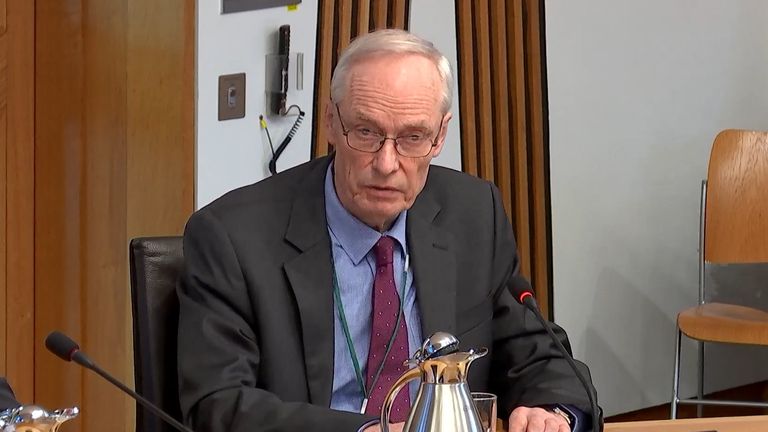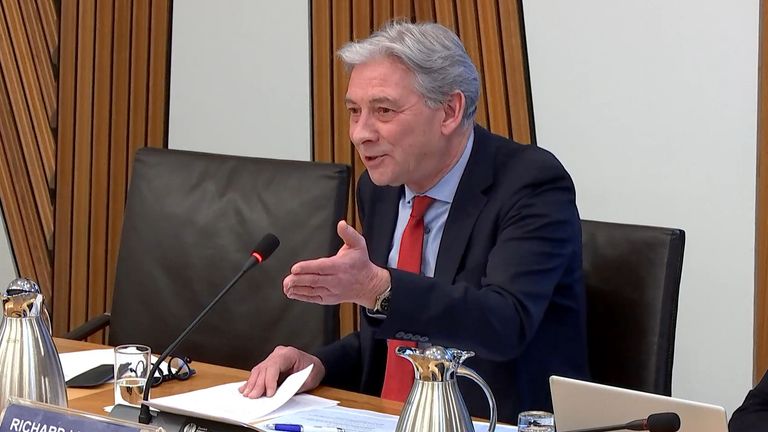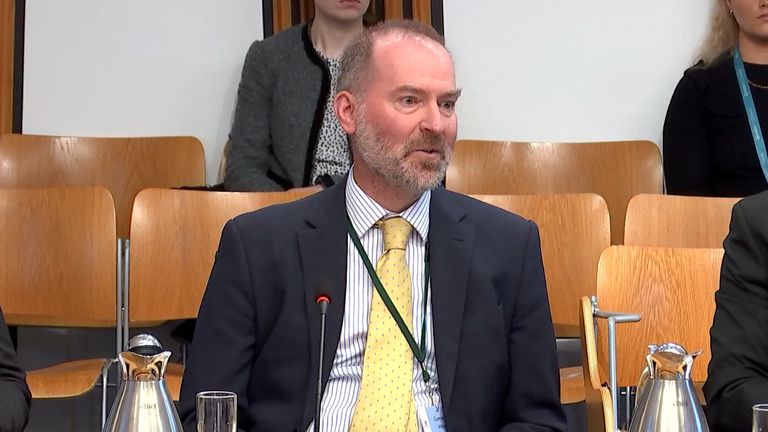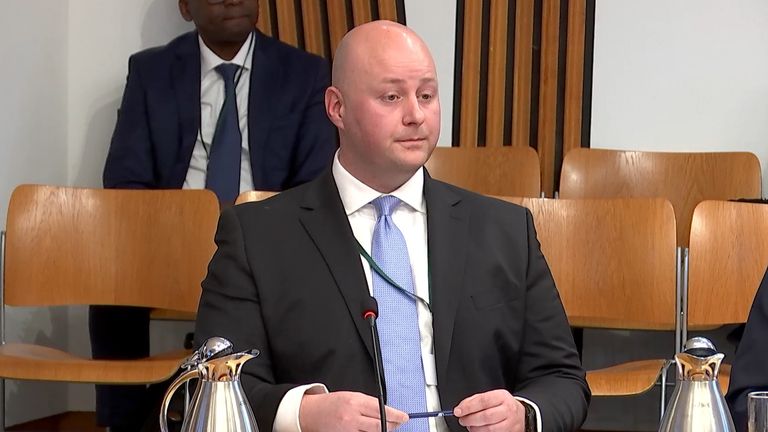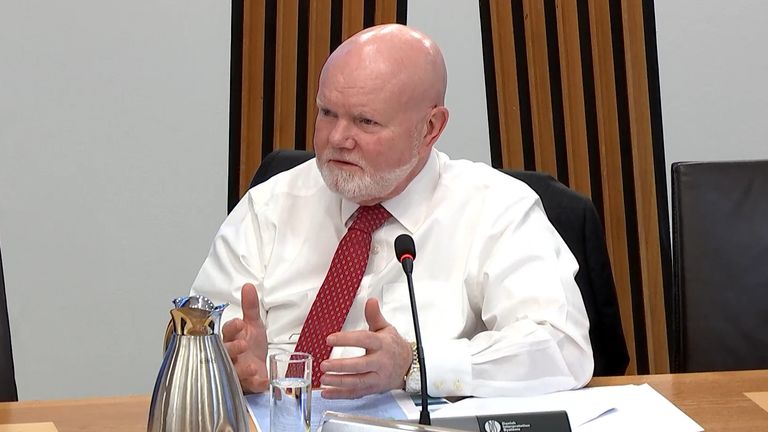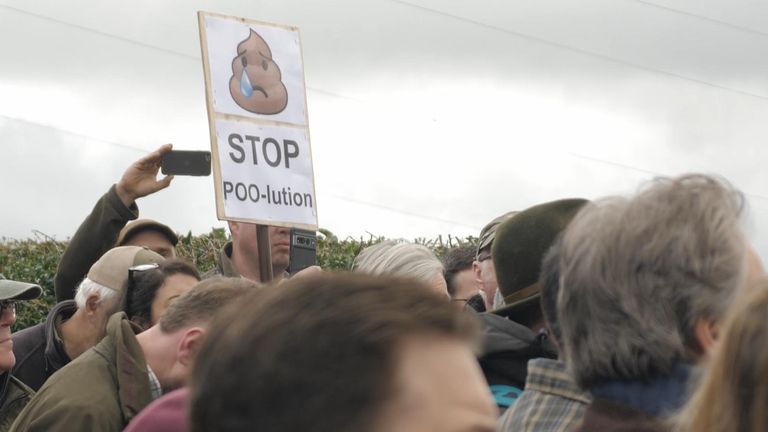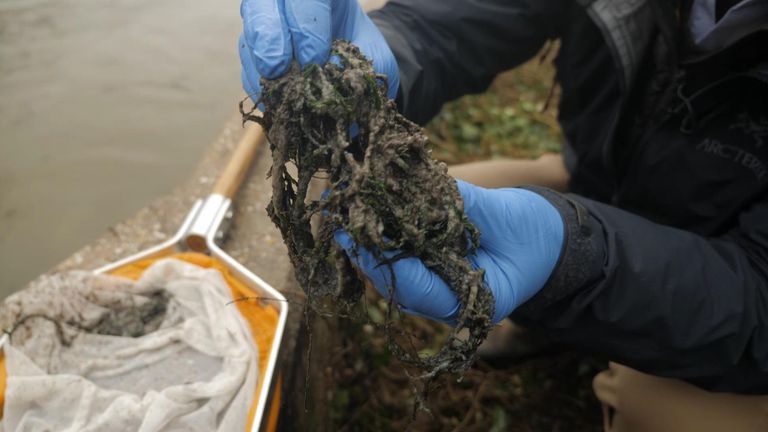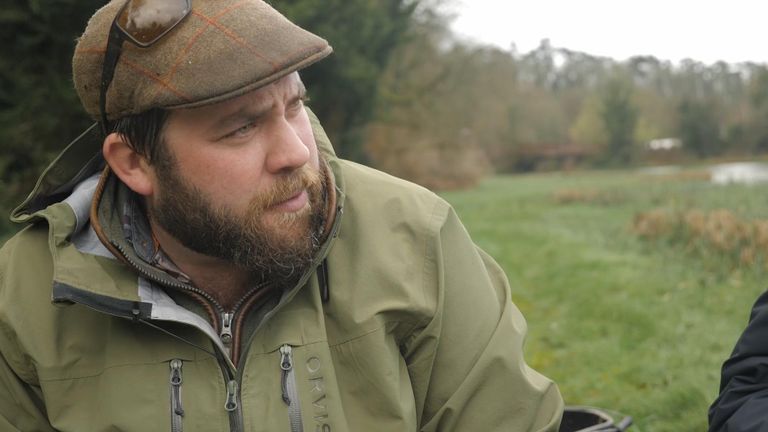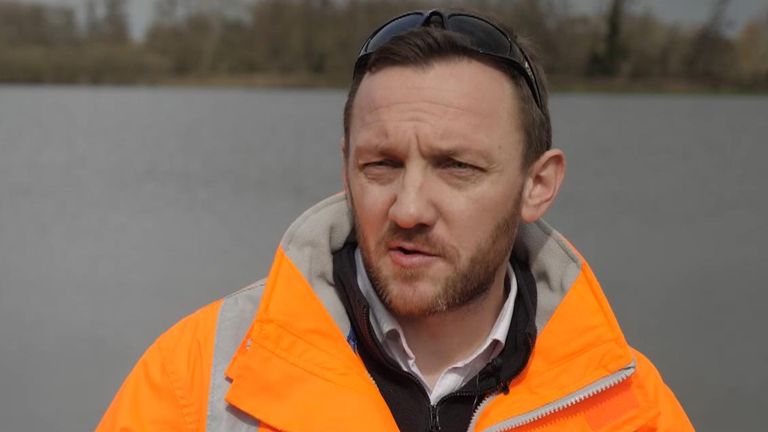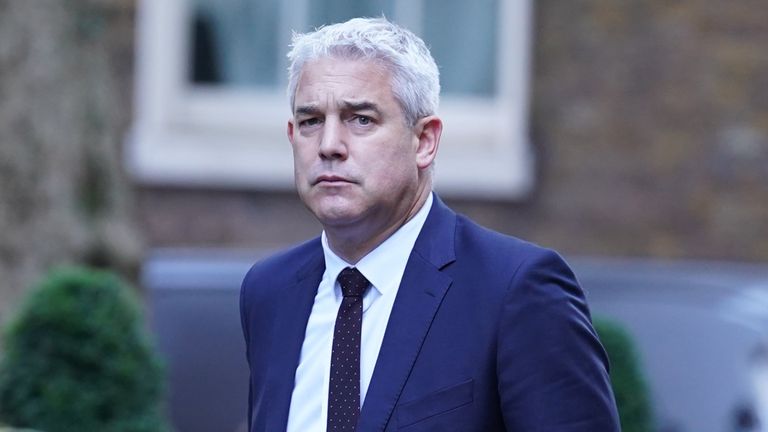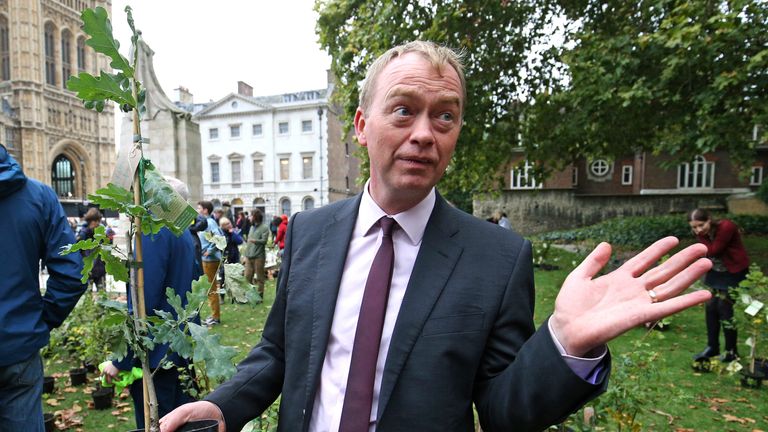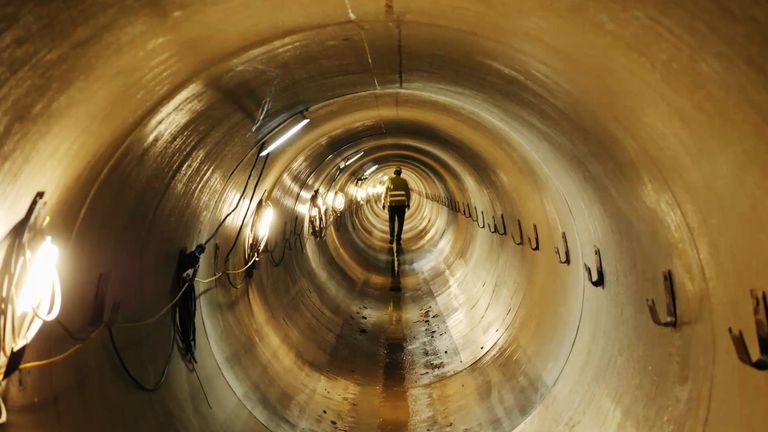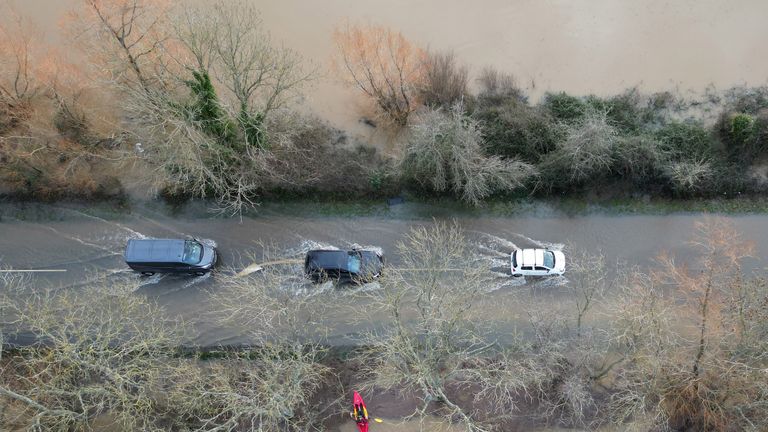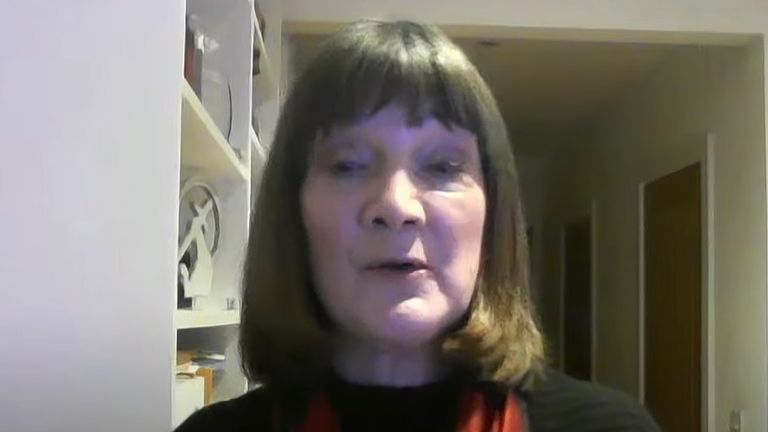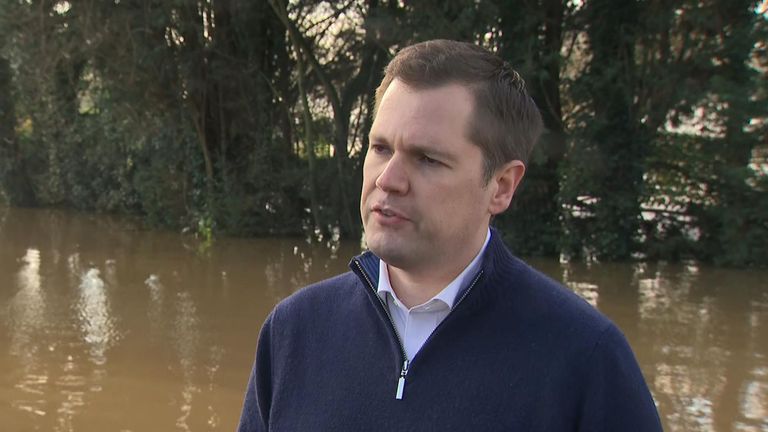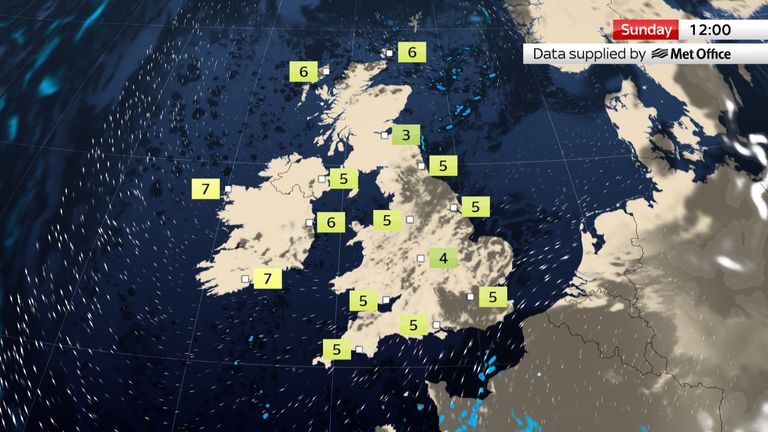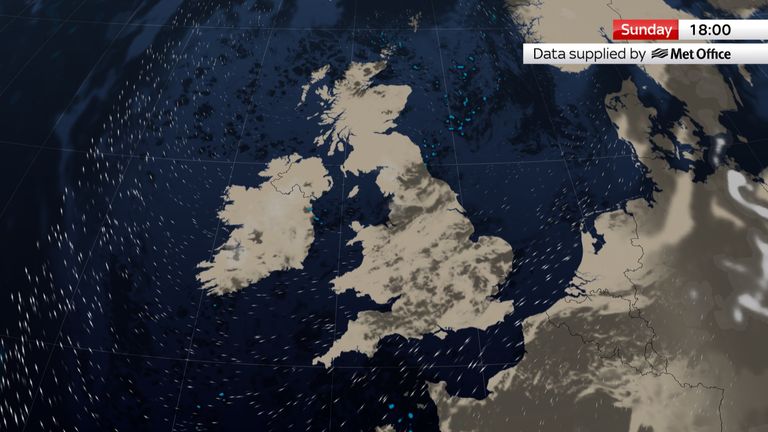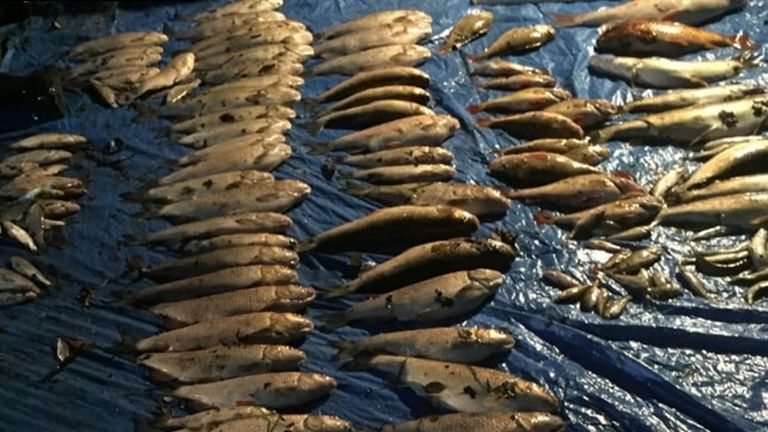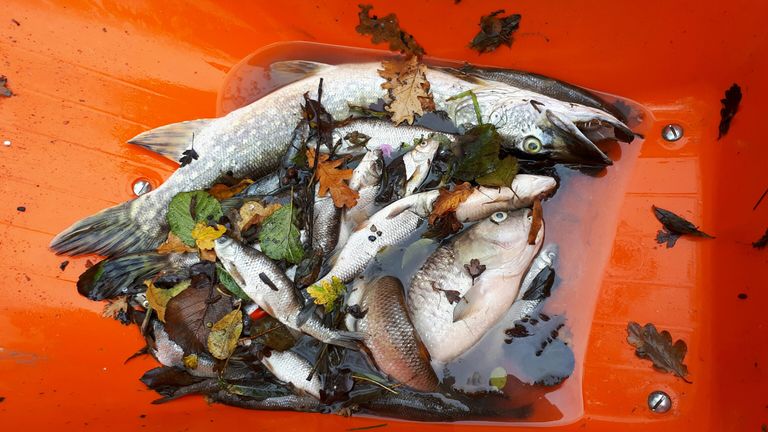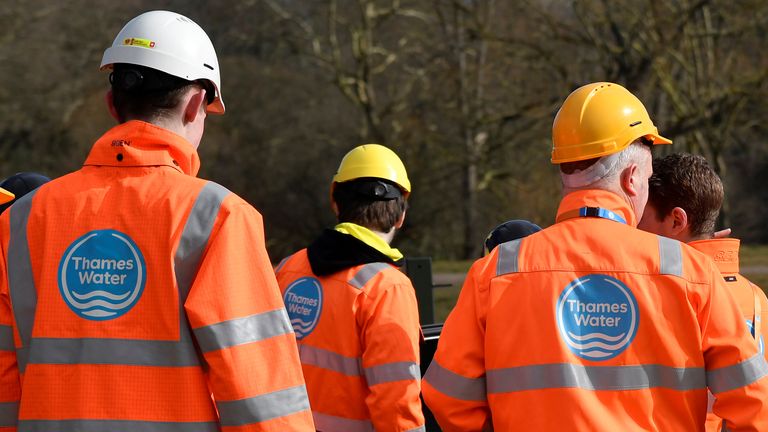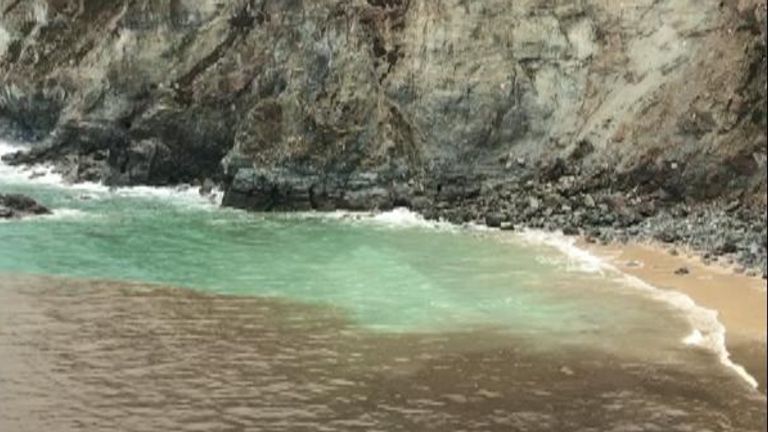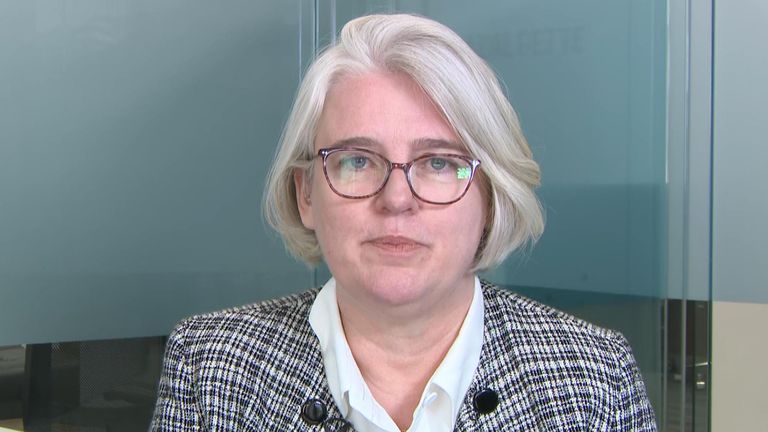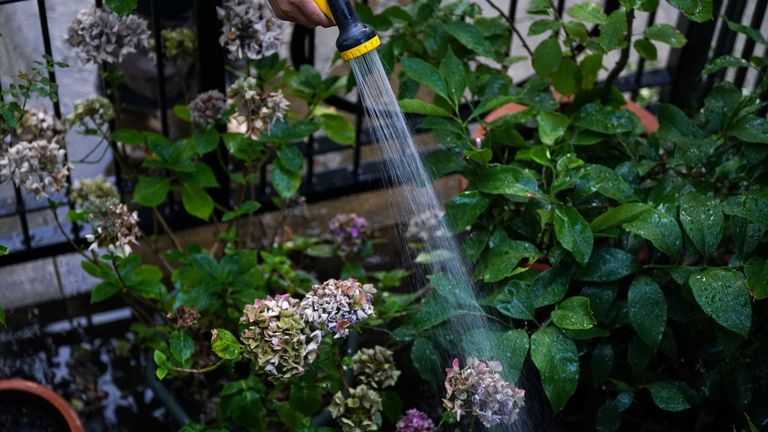‘Nice work if you can get it’: Scottish water regulator spent public money on gift cards, travel and course in US | UK News
A public body that spent more than £77,000 to send a senior executive to take a course at Harvard University in the US has defended the decision, by telling MSPs it invests in its staff to stop them from being “poached”.
The Water Industry Commission for Scotland (WICS) – which regulates Scottish Water – was accused of “poor governance” with public funds in a report by the Auditor General last year, and today faced scrutiny at Holyrood.
Its representatives insisted the culture had changed at the regulator, as they struggled to justify questionable spending highlighted in last year’s audit – including £2,600 to provide every staff member with a £100 gift card for Christmas and £402 on a dinner for two.
The report by the Auditor General found that the “financial management and governance issues found at the commission fall far short of what is expected of a public body”.
After the report, WICS chief executive Alan Sutherland quit with immediate effect in December and was awarded six months’ pay in lieu of his contractual notice period. While an exact figure for this was not provided, in 2021 the commission said the chief executive officer’s annual salary was more than £165,000.
A total of £77,350 was claimed for the Harvard Business School course attended by chief operating officer Michelle Ashford, which included business class flights to Boston.
Approval was only sought afterwards for the expenses, despite Scottish government approval being required in advance for any service above £20,000.
‘We find it difficult to compete with private sector’
Holyrood’s public audit committee criticised the money spent on the Harvard course during its meeting on Thursday.
MSP Jamie Greene questioned whether the organisation had been “running like a private sector business instead of a public sector body”.
Professor Donald MacRae, chair of the board at WICS, said the board should have been asked for approval first and accepted that the value for money for the Harvard course was “not fully demonstrated and the business case was inadequate”.
However, he explained: “WICS is a small public body operating in a very complex and specialised area, and we do find it difficult to compete on salaries with the private sector and actually to retain staff.
“And our staff are frequently subject to approaches to being poached, actually.
“Now, we recognise that our staff are our most important asset, and we take the view that we have to invest in them. And we have to invest in them by offering advanced management training.”
Despite Professor MacRae’s argument about retaining staff, the committee also heard no conditions were put in place ito ensure Ms Ashford stayed with WICS for a certain period of time after attending the course in the US.
Going forward, Professor MacRae said WICS will “still adhere to the policy of investing” in its staff.
But he added the organisation will look for alternative training “within Scotland or the UK at much lower cost” in the future, to deliver “better value for money”.
Richard Leonard MSP, committee convener, accused Jon Rathjen, deputy director for water policy at the Scottish government, of being “complicit” in the failures at WICS, in that he did not challenge the spending on the Harvard course.
Mr Rathjen accepted he “made an error of judgement” in relying on an assurance from the WICS chief executive.
He said WICS had approached the Scottish government to approve the spending retrospectively and refusing it would not have achieved anything.
‘Nice work if you can get it’
With regards to other spending at WICS, MSP Graham Simpson raised a £402.41 meal at the Champany Inn in Linlithgow, West Lothian, where then chief executive Mr Sutherland was dining with an official from the New Zealand government in October 2022.
David Satti, who has recently become the interim accountable officer at WICS, said no itemised receipt had been provided and the expense had been covered on an office credit card, adding: “We have no way of knowing the exact items that were purchased.”
Professor MacRae said the meal had been wrongly coded as “subsistence” but nevertheless had been “instrumental” in securing income of £1.2m from New Zealand.
Mr Simpson was also told that WICS workers sent to New Zealand were allowed to book business class as the flight is over six hours.
The MSP sarcastically responded: “Nice work if you can get it.”
Colin Beattie MSP questioned whether it was “unusual” for a public body to give staff members Christmas vouchers.
In regards to the £100 gift cards, which exceeded the £75 limit for gifts, Professor MacRae said: “You must remember the situation we were in, a situation where we were all operating remotely and still in the process of recovering from COVID.
“That was the background to the decision.”
It was heard that WICS has no intention to give out gift cards to staff members at Christmas in the future.
Read more from Sky News:
Women affected by change in pension age ‘owed compensation’
Sunak to guarantee pensions triple lock at next election
At the start of the meeting, Professor MacRae said there had been a “change of culture and focus on value for money” since the Audit Scotland report.
But MSP Willie Coffey delivered a damning verdict on the spending at WICS, saying: “I’ve been a member of the parliament, in the audit committee on and off for 17 years, and I have to say to you colleagues that this is one of the worst sessions I’ve ever participated in.”
WICS has a statutory duty to promote the interests of Scottish Water’s customers. It is funded via a levy on Scottish Water.
The organisation has 26 staff and had an income of about £5.3m last year.
